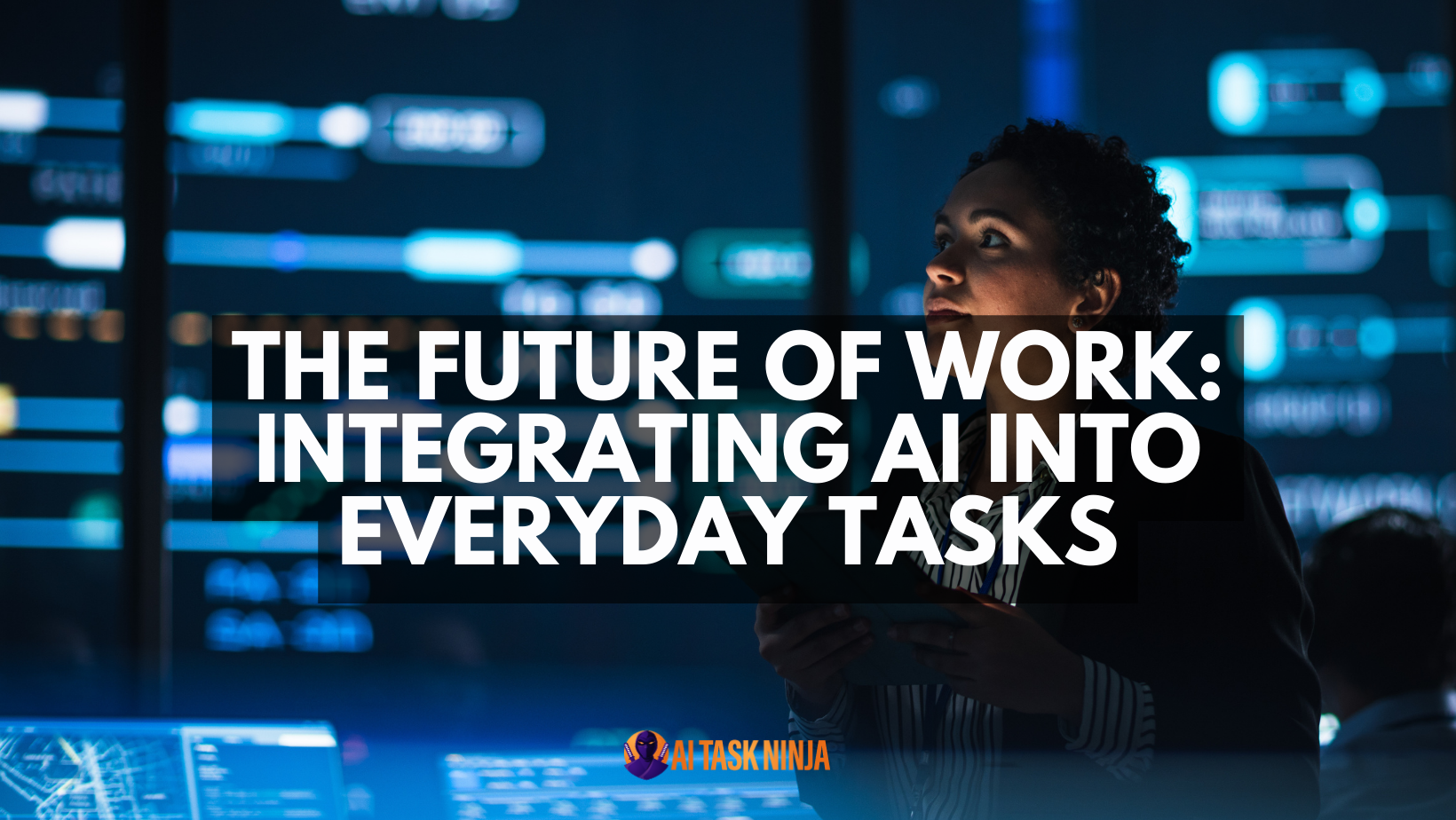The Future of Work: Integrating AI into Everyday Tasks
Admin / March 23, 2024

The workplace is a dynamic landscape, continually reshaped by technological innovation. Artificial intelligence (AI) stands poised to revolutionize the very nature of work, transforming mundane processes, empowering decision-making, and paving the path towards a future marked by unprecedented efficiency and collaboration. This article explores the ways in which AI will seamlessly integrate into everyday tasks, reshaping the way we work.
Automation of Routine and Repetitive Tasks
AI excels in handling routine, repetitive tasks that often consume valuable human time and cognitive resources. From data entry and report generation to email categorization and customer inquiries, AI algorithms can learn, adapt, and automate these processes with remarkable accuracy. This automation frees employees to focus on tasks that demand creativity, strategic thinking, and human connection.
Enhanced Decision-Making with Data-Driven Insights
AI's ability to process vast datasets and identify patterns far surpasses human capabilities. This analytical prowess makes AI an invaluable asset for business leaders and knowledge workers. AI-generated insights can illuminate trends, forecast outcomes, and reveal hidden correlations, leading to more informed decisions that drive organizational success.
Virtual Assistants and Intelligent Chatbots
AI-powered virtual assistants and chatbots are transforming the way we interact with technology and get things done. These intelligent interfaces can understand natural language, schedule appointments, retrieve information, and provide a personalized level of support for both customers and staff. They will streamline work processes and reduce the time spent on simple queries.
Augmented Creativity and Problem-Solving
AI, rather than replacing human creativity, can become a powerful tool for its augmentation. AI models can generate ideas, suggest alternative solutions, and offer inspiration, particularly in fields like design, writing, and innovation. By collaborating with these intelligent machines, humans can tap into a wellspring of creative potential, approaching problems with fresh perspectives.
Personalized Learning and Development
AI will tailor the learning experience to individual needs, creating a more efficient and impactful pathway for skill development. Intelligent systems can recommend relevant learning resources, identify knowledge gaps, and adapt content to ensure optimal comprehension. This shift will benefit both individuals seeking to upskill and organizations looking to nurture the talent pipeline.
Challenges and Opportunities
As with any transformation, the integration of AI into the workplace brings both challenges and opportunities:
- Job Displacement: Certain jobs with a high degree of automation potential are likely to be affected. To address this, organizations and governments will need to invest in reskilling and upskilling initiatives.
- Algorithmic Bias: It's critical to mitigate the risk of algorithmic bias in AI systems by ensuring they are trained on diverse datasets and regularly audited for fairness.
- Ethical Considerations: The integration of AI demands a thoughtful, ethical approach that prioritizes transparency, accountability, and human control.
Embracing the AI-Powered Future of Work
Successful integration of AI into workflows won't be a disruptive event but an evolutionary journey characterized by these key strategies:
- Start Small, Scale Strategically: Experiment with AI tools in specific areas to gain experience and build confidence.
- Focus on Collaboration: Frame AI as a powerful collaborator, not a replacement for human workers.
- Invest in Education: Provide training and resources for employees across the organization to develop AI literacy.
- Ethical Design: Embed ethical considerations into all stages of AI development and deployment.
The future of work envisions a symbiotic relationship between humans and AI. By harnessing AI's power for automation, analysis, and augmentation, we create a workplace where humans and machines work together, driving productivity, innovation, and a more fulfilling work experience for all.
Let me know if you'd like to explore any aspect of this in greater depth or want examples of current AI tools used in the workplace!